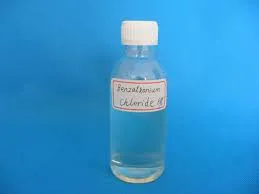Effective HEDP Usage for Optimizing Water Treatment Processes and Enhancing System Efficiency
Advanced Water Treatment Solutions HEDP as a Key Agent
Introduction
Water treatment is an essential process for ensuring the availability of clean and safe water for various applications, including drinking, industrial use, and environmental protection. In recent years, the search for effective and sustainable water treatment solutions has brought attention to a range of chemical agents. One such agent is 1-Hydroxyethylidene-1,1-diphosphonic acid, commonly known as HEDP. This article explores the role of HEDP in water treatment, its benefits, and its applications.
The Role of HEDP in Water Treatment
HEDP belongs to a class of phosphonic acids that are known for their excellent chelating properties. As a chelating agent, HEDP can bind to metal ions, which helps in preventing scale formation and corrosion in water systems. This property makes HEDP an ideal choice for various water treatment applications, particularly in industrial processes such as cooling water systems, boilers, and desalination plants.
One of the primary liabilities in industrial water systems is the presence of hardness ions like calcium and magnesium, which can lead to scaling. HEDP effectively inhibits scale formation by forming stable complexes with these metal ions, thus extending the lifespan of equipment and reducing maintenance costs.
Environmental Benefits
The use of HEDP in water treatment also aligns with environmental sustainability goals. Traditional water treatment chemicals, such as phosphates, can contribute to eutrophication in water bodies, leading to harmful algal blooms and ecosystem degradation. In contrast, HEDP is considered to be more environmentally friendly because it does not promote such adverse effects.
Moreover, HEDP is biodegradable under certain conditions, which means that it can break down into non-toxic byproducts over time. This property is particularly beneficial when considering the long-term impacts of chemical use in water treatment processes and its implications for water quality and aquatic life.
hedp water treatment

Applications of HEDP
HEDP is widely used in various sectors for water treatment. Some notable applications include
1. Cooling Water Systems Cooling towers in power plants or manufacturing facilities often face scaling and corrosion. The incorporation of HEDP into the water treatment regimen helps mitigate these issues, ensuring efficient heat exchange and reducing energy consumption.
2. Boiler Water Treatment In boiler systems, HEDP serves as an effective anti-scaling agent. It prevents the deposition of hardness minerals on heat transfer surfaces, which can otherwise impair thermal efficiency and lead to costly downtimes.
3. Membrane Separation Processes In reverse osmosis and ultrafiltration applications, HEDP is employed to reduce membrane fouling caused by the precipitation of scale-forming salts. This enhances the longevity and performance of membrane systems.
4. Desalination HEDP plays a critical role in the desalination process, particularly in pre-treatment stages, where it helps to control scaling potential and protect sensitive membrane structures from fouling.
Conclusion
HEDP is emerging as a vital component in modern water treatment practices due to its multifunctional properties and environmental advantages. Its ability to effectively chelate metal ions, coupled with its low ecological impact, positions it as a green alternative to traditional chemical agents. As industries and municipalities continue to prioritize sustainability, the role of HEDP in water treatment processes is likely to expand.
Investing in advanced water treatment solutions that utilize HEDP not only enhances operational efficiency but also contributes to the overall health of our water ecosystems. As we strive for a more sustainable future, the importance of innovative solutions like HEDP in water treatment will undoubtedly be a focal point in both research and practical applications.
-
lk-319-special-scale-and-corrosion-inhibitor-for-steel-plants-advanced-solutions-for-industrial-water-systemsNewsAug.22,2025
-
flocculant-water-treatment-essential-chemical-solutions-for-purification-processesNewsAug.22,2025
-
isothiazolinones-versatile-microbial-control-agents-for-industrial-and-consumer-applicationsNewsAug.22,2025
-
scale-inhibitor-key-solutions-for-water-system-scale-preventionNewsAug.22,2025
-
organophosphonates-versatile-scale-inhibitors-for-industrial-water-systemsNewsAug.22,2025
-
scale-and-corrosion-inhibitor-essential-chemical-solutions-for-water-system-maintenanceNewsAug.22,2025





